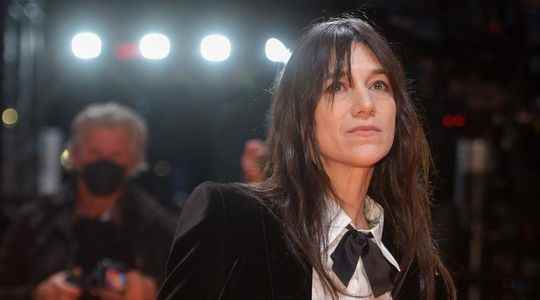Charlotte Gainsbourg, Juliette Binoche, Louise Bourgoin… But also Jean-Michel Aulas, Jo-Wilfried Tsonga, Laure Manaudou, Dimitri Payet… Celebrities from the world of culture and the sports world came out of their silence throughout of the week. Several hundred of them have signed forums calling to counter a possible victory for Marine Le Pen on Sunday April 24 for the second round of the presidential election.
When “French sportsmen and women from all walks of life and all disciplines” can only “imagine this historic moment [les Jeux olympiques 2024] be marked with the seal of a far-right presidency”, the “actresses and actors in the world of culture, performing arts”, they cannot “imagine, at the head of France, a candidate whose program remains that of xenophobia and withdrawal, a candidate who has made an alliance with totalitarian and warmongering powers.
A unanimous call that brings together 220 athletes in a column published in The Team Friday, April 15, around fifty other players from the world of sport in a column published on franceinfo on Tuesday April 12 and some 500 artists representing the world of culture this time in The Parisian April 15. This front of celebrities against the National Rally seems resounding. But what influence can these stars really have on the vote of the French?
An influence “that has become extremely marginal”
“I think that this influence, already weak in the past, has become extremely marginal, slice Frédéric Dabi, deputy director general of the Ifop polling institute, contacted by L’Express. There is no influence, this is not a factor in mobilizing the vote, we see it in our surveys, because there is a deterioration in the image of artists”. “The signature campaigns do not have an extremely strong impact on the behavior of voters”, abounds with L’Express Pascal Perrineau, political scientist and university professor at Sciences Po.
Citizens do not recognize themselves in this cultural and artistic elite, which they associate with all the other elites – political, media – which have also become a source of mistrust. “There is a crisis of all the authorities, whatever they are. The same goes for the great figures of the world of the arts, of the spectacle”, develops Pascal Perrineau. It can even become “counterproductive” for Emmanuel Macron to have personalities around him, warns Frédéric Dabi, “even if it won’t change much”.
Indeed, the celebrities of the world of culture seem far from the concerns of the French. They can give the impression of not being confronted with certain difficulties encountered by citizens. They also seem to mobilize only in the event of danger which they determine, here, a far-right candidate capable of reaching the Elysée, after having been silent in the first round of the ballot, and above all silent during the quinquennium. “We have the impression that the elites are indifferent to the collective fate”, summarizes Pascal Perrineau.
The old French tradition of commitment
However, it is an old French tradition that brings us back to positions as strong as that of Emile Zola during the Dreyfus affair. It lasted for some time. Not so long ago, candidates for the presidential election knew how to surround themselves with intellectual and artistic figures to campaign and displayed themselves with them during meetings. François Mitterrand, Valéry Giscard d’Estaing, and more recently Ségolène Royal, François Hollande or Nicolas Sarkozy have appeared alongside French stars as famous and respected as Louis de Funès, Dalida, Johnny Hallyday or Enrico Macias.
At the time, “it was a necessary step to take a stand for one of the candidates”, recalls Frédéric Dabi. But this old tradition is no longer valid. “It’s been twenty years since trust in major opinion leaders has declined, analyzes Pascal Perrineau. Their role is mainly with people who are already convinced. In terms of effectiveness in convincing the undecided, it is close to zero.
Especially since these stars today may have less influence on young people than influencers who accumulate thousands of followers on their networks. But the latter have no interest in taking a position because “they are in a very commercial approach”, points out to L’Express Odile Lambry, expert in advice and communication strategy. These celebrities also have less weight than the previous ones. For the expert, “the last star who really weighed was Johnny Hallyday. We don’t have any more of this size, and their weight is equivalent to their size.”
Athletes, more respected figures
On the other hand, a position taken by athletes and players in the sports world can have an impact on part of the population. These personalities, respected for what they are supposed to represent – the effort, the work -, and seen as models, can attract more attention. Especially that of the working classes and the young. “These are leaders who touch popular circles, while intellectuals touch more strata of the so-called ‘enlightened’ middle strata for which societal and cultural issues are important. Athletes address a younger population who identify with them”, explains Pascal Perrineau.
In addition, high-level athletes come more from diversity than French actors, singers and comedians. “I think that the number of athletes and their diversity can reach a certain audience”, suggests Odile Lambry. But the problem persists. For Pascal Perrineau, electoral influence “can play on the margins but that does not have a massive effect because voters decide in their heart of hearts, with their intimate group of belonging such as family, colleagues.”
“We have changed eras, the French have taken so many things, between terrorism, the Covid-19, the yellow vests, the war, that they no longer want to have opinion leaders. This what they expect from artists is that they entertain them”, analyzes Frédéric Dabi. Moreover, celebrities themselves have less desire to engage politically after having seen some of them burn their wings in the past by lining up behind a candidate. Like the French, 26% of whom abstained in the first round, they have a very low rate of commitment to politics.
